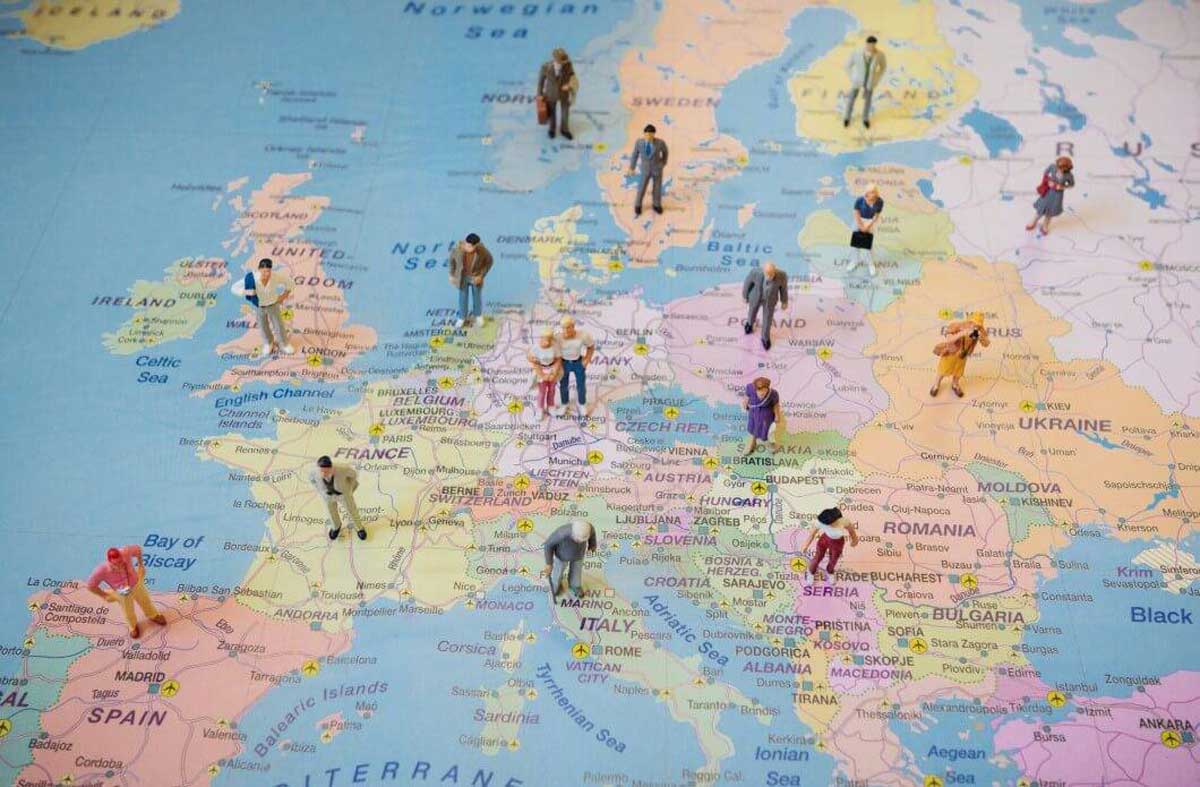Booking rates in European tourism are still at least 30 percent below 2021 levels, according to the ECTAA (European Association of Travel Agents and Tour Operators) and other industry associations, which they blame primarily on Europe’s uncoordinated coronavirus response – and now they are calling on European countries to finally make travel predictable and safe again.
In recent weeks, Europe has once again been in the grip of a pandemic following a surge in cases of covid, especially the latest and highly contagious variety, Omicron. A panicky reaction from governments on both sides of the Atlantic was inevitable and, as in the same period last year, led to a quasi-stagnation in travel. Now Europe’s tourism professionals have run out of patience: several European tourism organizations, led by the ECTAA, have called on governments across the continent to (again) harmonize travel rules to avoid patchwork rules.
The joint statement says travelers and businesses need a stable and consistent European rule structure to be able to travel again and prepare safely for the spring and summer season. While the European Commission announced in December that a digital Covid certificate (DCC) would be valid for nine months in the EU without revaccination, several EU countries, including France, Italy, Denmark and Malta, have decided to reduce the validity of vaccination certificates to seven. or three months for national use. A number of countries have also introduced additional testing requirements that apply to vaccinated/recovered EU travelers, contrary to current European Council recommendations.
“Not in this way,” conclude associations concerned about the revamped patchwork of rules across Europe. The travel industry as a whole supports the European Commission, which says that the agreed duration of the DCC is “necessary for the safe free movement of people and coordination at the EU level.” Indeed, the Commission recommends that EU Member States apply the same DCC duration for travel within the EU and nationally, but the differences are clear on this point.
Similarly, states must adhere to the Council’s recommendations, which are agreed and updated from time to time to ensure that travel between member states is always possible under the same conditions throughout the EU.
Recovery unlikely before 2023
The associations also note that the Covid 19 pandemic has led to the largest global recession since World War II. Data shows that the EU economy has lagged behind those of the US and China from 2019 to date, with forecasts confirming a recovery is unlikely before 2023. The countries of Southern Europe were particularly hard hit, and there is no doubt that the travel and tourism industry has been hit harder than other industries.
Even though the pandemic has been raging for two years, several EU member states continue to act unilaterally, introducing a different duration of the DCC and different rules for children and young people under 18. This will directly impact families planning to travel during the winter break and later in the spring, or future travel planning and holiday bookings by individual travelers and companies.
In addition to the ECTAA, organizations such as Airlines for Europe (A4E), ACI Europe, the Cruise Line International Association (CLIA), the European Regional Airlines Association, ETOA and the European Retail Confederation have joined the pan-European call.

